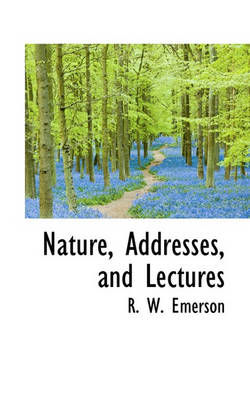Wordsworth American classics
1 total work
Emerson summed up the major development of romanticism in America whilst his philosophy is rooted in the Puritan background. His thought is often considered the core of transcendentalism. His first book, "Nature", is the fundamental document of his philosophy, and expresses his constant, deeply felt love for the natural scenes in which he passed much of his time. "The American Scholar" shows how he applied his ideas to cultural and national problems. In his "Divinity School Address" he attacks formal religion and champions intuitive spiritual experience. He advocates the doctrine of higher individualism, the spiritual nature of reality, the importance of self-reliance, the obedience to instinct and the existence of a unifying "Over-soul" which explains the many diverse phenomena of life.
